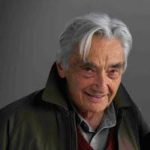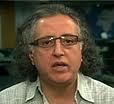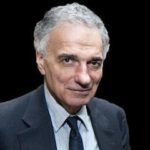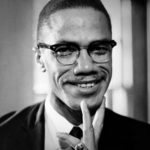Be the first to review “Zinn-tenary Broadcasts 6-pack” Cancel reply
Zinn-tenary Broadcasts 6-pack
6 CDs
Includes:
A People's History of the United States
2 CDs "You wanna read a real history book?" Matt Damon asks Robin Williams in the movie Good Will Hunting. "Read Howard Zinn's People's History of the United States. That book'll knock you on your ass." It'll do that and more. Howard Zinn's A People's History of the United States has sold more than 2 million copies. And it keeps on selling. Zinn's close friend Noam Chomsky said the book "changed the consciousness of a generation." Zinn's history from below approach was to foreground as he said, "the countless small actions of unknown people." It was a sharp departure from the traditional great men framing of history: presidents, generals, leaders, etc. His unorthodox bottom-up approach presented the past stripped of its myths and propaganda. Recorded at Reed College.
Second Thoughts on the First Amendment
“Congress shall make no law…abridging freedom of speech.” There it is. Plain and simple. The First Amendment to the Constitution. But since 9/11 that amendment has been under sustained attack. Whistleblowers John Kiriakou, Julian Assange, Chelsea Manning, Edward Snowden, and others are hounded, threatened and imprisoned by the U.S. government. A fascinating and compelling account of past and present efforts to secure and expand political and social rights for workers, women and African-Americans. A classic Zinn from our archives. Recorded at the University of Colorado.
Q&A in Albuquerque
This recording, recently discovered in the piles at AR, features the great radical historian talking with students at UNM. He is asked about getting past the culture of denial of the powerful. Drawing on his vast knowledge of history he says, “It always takes time and persistence. Every movement looks like it is hopeless in the beginning. It seems people have no power. But then people took risks. The most important thing we can do is not to hold back. Resist authority. The more people speak out it encourages others to do the same. The American system is controlled but it has little openings. We have to take advantage of those openings.” He tells the students about his friend and fellow WWII vet, Kurt Vonnegut and a letter the New York Times refused to print. A perfect companion to the Back Seat Interviews I did with him that same day as we drove from Santa Fe to this event in Albuquerque and back. Recorded at the University of New Mexico.
American Exceptionalism
American exceptionalism has been a fundamental tenet of U.S. foreign policy. International law applies to designated enemies, not for Washington and its vassals. Obey the master or face the consequences. Assassinations, sanctions, bombings, invasions and occupations are all tools of the empire to enforce its diktats. As George H. W. Bush once said, echoing Tony Soprano, "What we say goes." The arrogance is bi-partisan. But since January 6, the question begs: Is this the end of American Exceptionalism?
Three Holy Wars
The conventional view of U.S. wars follows a formulaic line: We are innocent victims of unprovoked attacks. The sleeping giant wakes and reluctantly goes to fight. All military action is imbued with benevolent intentions: human rights, democracy, and liberty. There are parades and flag-waving. Solemn ceremonies and gun salutes at funerals honor the fallen. But who asks for what and for whom were they killed? Who benefits? Weapons manufacturers and mercenary contractors make out like bandits. That's a taboo subject. Resources? Empire expansion? Don't go there. Stick to patriotism. You can mouth the typical prattle of they died for freedom. The Afghan war is Operation Enduring Freedom. And war crimes? That's what they do, not us. Tribunals? Same deal: for them. Wars are packaged and sold just like any other commodity. Propaganda is skillfully used to win over the population. Recorded at Boston University on Armistice Day.
Speaker

Howard Zinn
HOWARD ZINN CENTENARY 1922-2022
Howard Zinn, professor emeritus at Boston University, was perhaps this country’s premier radical historian. He was born in Brooklyn in 1922. His parents, poor immigrants, were constantly moving to stay, as he once told me, “one step ahead of the landlord.” After high school, he went to work in the Brooklyn Navy Yard. During World War II, he saw combat duty as an air force bombardier. After the war, he went to Columbia University on the GI Bill. He taught at Spelman, the all-Black women’s college in Atlanta. He was an active figure in the civil rights movement and served on the board of SNCC, the Student Nonviolent Coordinating Committee. He was fired by Spelman for his activism. He was among the first to oppose U.S. aggression in Indochina. His book Vietnam: The Logic of Withdrawal was an instant classic. A principled opponent of imperialism and militarism, he was an advocate of non-violent civil disobedience. He spoke and marched against the U.S. wars on Afghanistan and Iraq. His masterpiece, A People’s History of the United States, continues to sell in huge numbers. Among his many other books are You Can’t Be Neutral on a Moving Train, Failure to Quit: Reflections of an Optimistic Historian and Original Zinn with David Barsamian. Shortly before his death he completed his last great project, the documentary The People Speak. Always ready to lend a hand, he believed in and practiced solidarity. Witty, erudite, generous and loved by many the world over, Howard Zinn, friend and teacher, passed away on January 27, 2010. He would say, Don’t mourn. Get active. The struggle for peace and justice continues.







Reviews
There are no reviews yet.